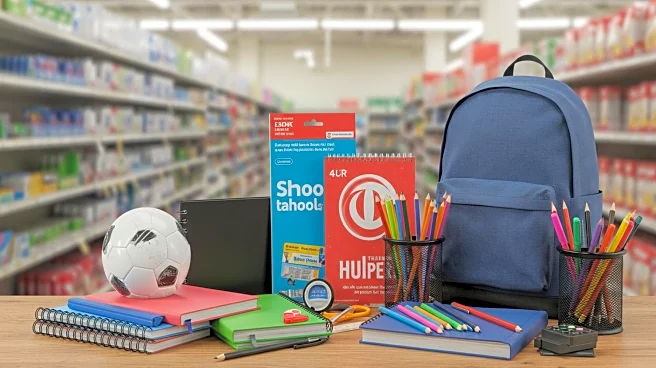What's Happening?
The back-to-school shopping season is being affected by tariffs and budget-conscious consumers, leading retailers to adopt creative strategies to protect margins. UBS's survey indicates that elevated import duties are a major concern, resulting in reduced consumer spending intentions. The National Retail Federation predicts a slight decline in spending on school-related items. Retailers like TJX Companies, Costco, and Amazon are positioned to benefit from this environment due to their pricing flexibility and value-oriented offerings. These companies are expected to capture more consumer dollars as families prioritize affordability amid tariff-driven inflation.
Why It's Important?
Tariffs and inflation are creating challenges for both consumers and retailers, impacting spending habits and profit margins. Value-oriented retailers like TJX, Costco, and Amazon are likely to gain market share as consumers seek cost-effective options. This dynamic underscores the importance of pricing strategies and supply chain management in navigating economic pressures. Retailers that can effectively manage costs and offer competitive pricing are poised to succeed in this environment.
What's Next?
Retailers are expected to continue leveraging strategies like stockpiling inventory, diversifying supply chains, and negotiating with suppliers to mitigate tariff impacts. Earnings reports from major retailers, including TJX and Walmart, will provide insights into how companies are adapting to these challenges. The ongoing tariff-driven inflation may influence consumer behavior and retail strategies throughout the year.
Beyond the Headlines
The tariff situation highlights broader economic challenges and the need for strategic adaptation in the retail industry. Retailers' ability to balance cost management with consumer demand will be crucial in maintaining competitiveness and profitability.









